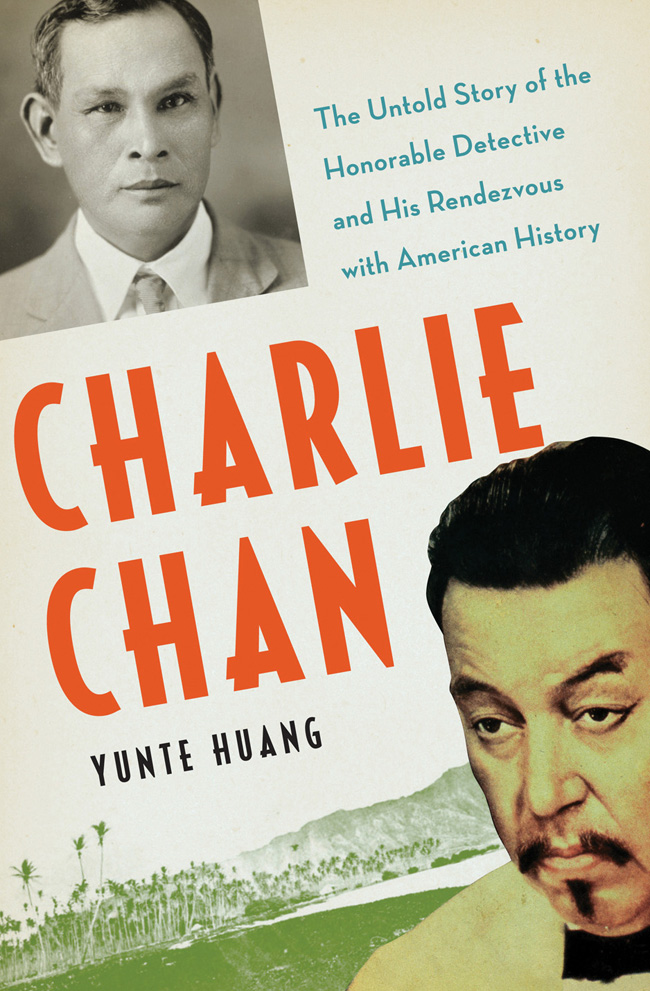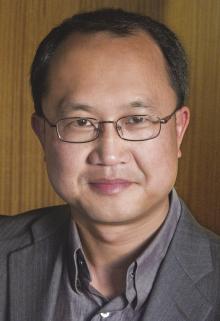
UCSB English Scholar Traces Evolution of Charlie Chan from Island Legend to Pop Cultural Icon to Postmodern Symbol

Between 1925 and 1949, Charlie Chan reigned as the fictional hero of six detective novels by Earl Derr Biggers, and as the title character in no fewer than 47 Hollywood films. Modeled after Chang Apana, the legendary Cantonese police officer born in Hawaii around 1871, Chan was a popular literary figure as well as a stereotype that long defined America's distorted perceptions of Asians and Asian Americans.
In his new book, "Charlie Chan –– The Untold Story of the Honorable Detective and His Rendezvous with American History" (W.W. Norton, 2010), Yunte Huang, professor of English at UC Santa Barbara, traces Chan's evolution from island legend to pop culture icon to vilified postmodern symbol. The book, which has already garnered national publicity from such media outlets as the New York Times, The New Yorker, Time Magazine, and National Public Radio, juxtaposes Apana's rough-and-tumble career against the larger backdrop of a territorial Hawaii torn apart by virulent racism.
"To write about Charlie Chan is to write about the undulations of the American cultural experience," Huang notes in the book's introduction. "Like blackface minstrel, Charlie Chan carries both the stigma of racial parody and the stimulus of creative imitation."
Portrayed on the big screen by actors Warner Oland, Sidney Toler, and Roland Winters –– none of whom were of Asian descent –– Charlie Chan is a product of cultural miscegenation, Huang said. "He is a Chinese character created by a white author and played by white actors. This is something uniquely American."
When Chan first appeared in 1925, a year after the passage of the Johnson-Reed Act, a landmark anti-immigration law, he was perceived as a friendly, charming, non-threatening foreigner. That, according to Huang, accounted for the character's initial popularity in American pop culture. His apparent exoticism and subsequent on-screen yellowface appearance, however, would later become targets of criticism by Asian Americans. The death knell sounded for Chan in the 1980's because the pioneers of Asian American literature encountered enormous obstacles. "I'm hoping to convince them to take another look at this iconic Chinese," said Huang.
For Huang, who was raised in a small town in southeastern China, Charlie Chan is the key to his understanding of the Asian American experience and American culture at large. "Chan is the embodiment of the racist legacy and creative genius of this great nation," he said. "As an immigrant from China, I feel that this iconic Chinese holds the key to my experience in America. That's part of the reason I wrote the book, to think about America through Chan."
Huang, who received his Bachelor of Arts degree from Peking University, became fascinated with Charlie Chan in 1994 as a graduate student at the Poetics Program at the State University of New York in Buffalo. He happened upon two Charlie Chan novels at an estate sale, and became an immediate fan of the Chinese-American detective. After completing his Ph.D. in 1999, he taught English at Harvard University, where he began to research the interrelated stories of Chang Apana and Charlie Chan, and the life of Biggers, a Harvard graduate himself.
"He is hilariously funny," Huang said of Charlie Chan. One might expect Caucasians to find humor in the character while Asians find offense, Huang noted, but he discovered that this was not always the case. "I was told secretly by many Asian and Asian American friends that they love Charlie Chan," he said. "The biggest challenge for me in writing the book is to reconcile the two images of Chan –– a beloved character on the one hand, and a hated character on the other."
As it turned out, the book became more than just a scholarly project for Huang. It proved to be a ife-changing event. "It was in the process of writing this book that I became an American," he said. "The more I wrote, the more did I realize that despite all the racism in the past, America is still such a great country. So, after all these years, I finally decided to apply for my American citizenship. And now I am a U.S. citizen, just like Charlie Chan."
Huang will be signing copies of "Charlie Chan –– The Untold Story of the Honorable Detective and His Rendezvous with American History" at 7 p.m. on Thursday, September 23, at Chaucer's Books, 3321 State Street.
Related Links



